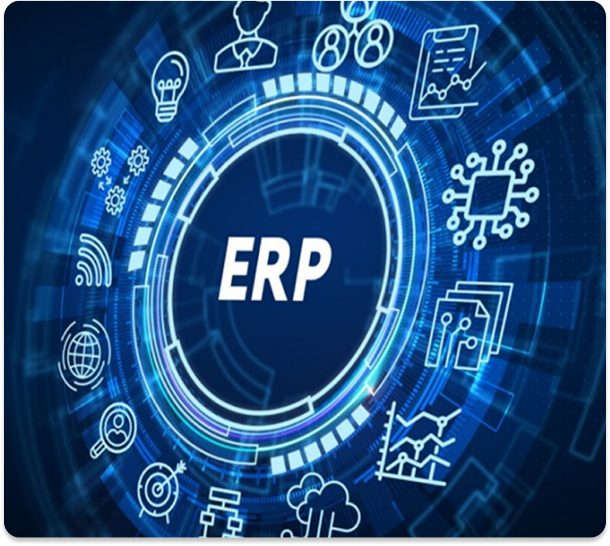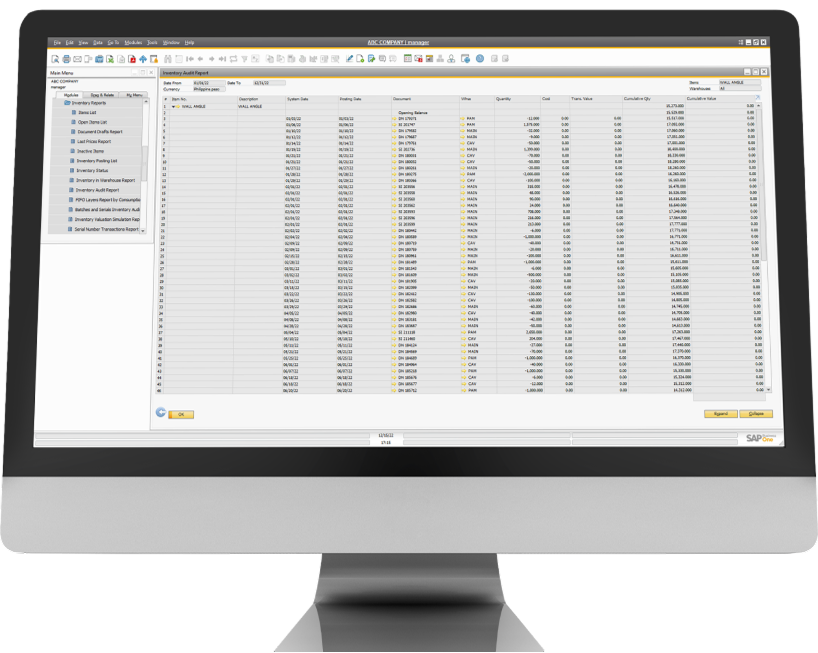
Finance & Accounting
This module handles core financial functions such as general ledger, accounts payable and receivable, budgeting, and tax reporting. By automating routine accounting processes, it enhances accuracy and helps maintain compliance with financial regulations. Real-time reporting tools provide clear insights for tracking and managing financial performance.

Purchasing
ERP solutions in the Philippines streamline procurement workflows—from purchase requisitions to order fulfillment and vendor management. Centralized tracking improves cost control and delivery accuracy. Businesses gain real-time visibility into their sourcing and supply chain transactions.

Manufacturing
The manufacturing module supports production planning, scheduling, and coordination across departments. It connects raw materials, inventory, and operations to maintain quality and efficiency. This integration is essential for companies producing goods at scale.

Material Requirements Planning (MRP)
MRP tools help forecast demand, schedule production, and plan purchases based on current and projected inventory needs. The system ensures materials are available when needed, minimizing delays and stockouts. It enhances coordination between procurement, warehousing, and production.

Inventory Management
This module monitors stock levels, warehouse operations, item records, and inventory valuation. Automated tracking ensures timely replenishment and reduces overstock and stockouts. It delivers accurate, real-time data to support supply chain decisions.

Customer Relationship Management (CRM) & Sales
CRM tools consolidate customer profiles, sales pipelines, and interaction histories in one system. Integrated sales processes improve forecasting, order processing, and client servicing. These features help drive stronger relationships and revenue growth.

eCommerce
The eCommerce module syncs online transactions with ERP back-end processes such as pricing, inventory, and accounting. It enables real-time updates across platforms and ensures accurate data and a seamless customer experience. Businesses benefit from unified operations across both physical and digital channels.

Service
Service management tools handle warranty tracking, service orders, and customer support tickets. These features improve service response times and documentation. They help maintain consistent after-sales performance and client satisfaction.

Job Costing
Job costing tools track project-specific labor, material, and overhead expenses. This data helps determine profitability and supports accurate billing. Companies gain better financial visibility over custom or short-term projects.

Project Management
This module enables structured planning, budgeting, and tracking of ongoing projects. It supports task assignments, milestone monitoring, and financial analysis. Managers can align resources and timelines for smoother project execution.

Human Resources
HR tools consolidate employee records, manage payroll and benefits, and support recruitment workflows. Attendance, leave, and performance can all be monitored in one platform. This helps businesses align workforce planning with operational needs.

Analytics & Reporting
ERP analytics consolidates data from all modules into dynamic dashboards and reports. These tools support performance monitoring and decision-making at every level. Accurate insights help businesses stay agile and competitive.





